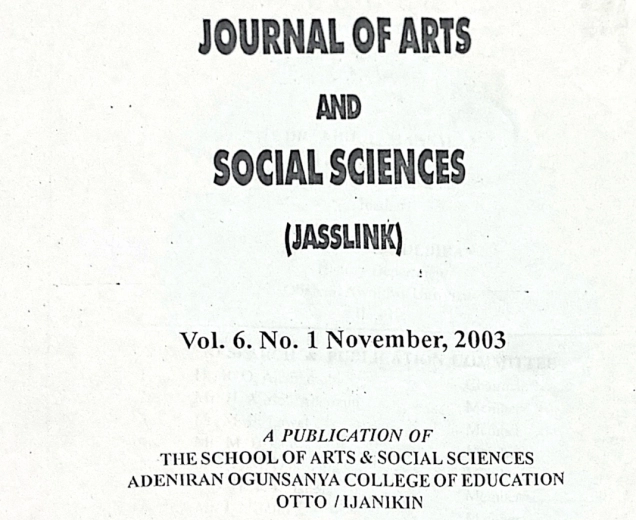Theatre as Celebration in Traditional African Society: A Case Study of Ogudu Festival in Amоkаpu Unkpа, Abia State, Nigeria
The development of indigenous dramatic tradition is inherent in festivals, rituals, cultures and religious ceremonies of African society. This has led to a more diligent study of the art form till date. Writers and critics have sprung up over the years to air different views and opinions about the traditional African culture, and the rich heritage that it is. Prior to the advent of modern drama, Africans at large had their own forms of drama. There was the development of a conscious interest in the past dance, festivals, rites and rituals of various ethnic groups. This has led to a better understanding of the nature, functions and aesthetic values of indigenous dramatic practice. In these days, when individualism and materialism seem to be suppressing communalism, ethnic groups still find it necessary and important to assemble from time to time. At such gatherings, festivals, rites, rituals and ceremonies become a binding factor to foster peace, love and unity in the traditional society. This includes the dramatization of folk traditions and the re-enactment of historic events. In this light, theatre is operational. The word theatre means “the act of seeing,” therefore it implies perception. Theatre encompasses plays, pantomimes, puppets, marionettes, musicals, multimedia expressions and all manifestations of avant-garde or alternative theatrical forms. As such, these traditional performances are regarded as being theatrical.

